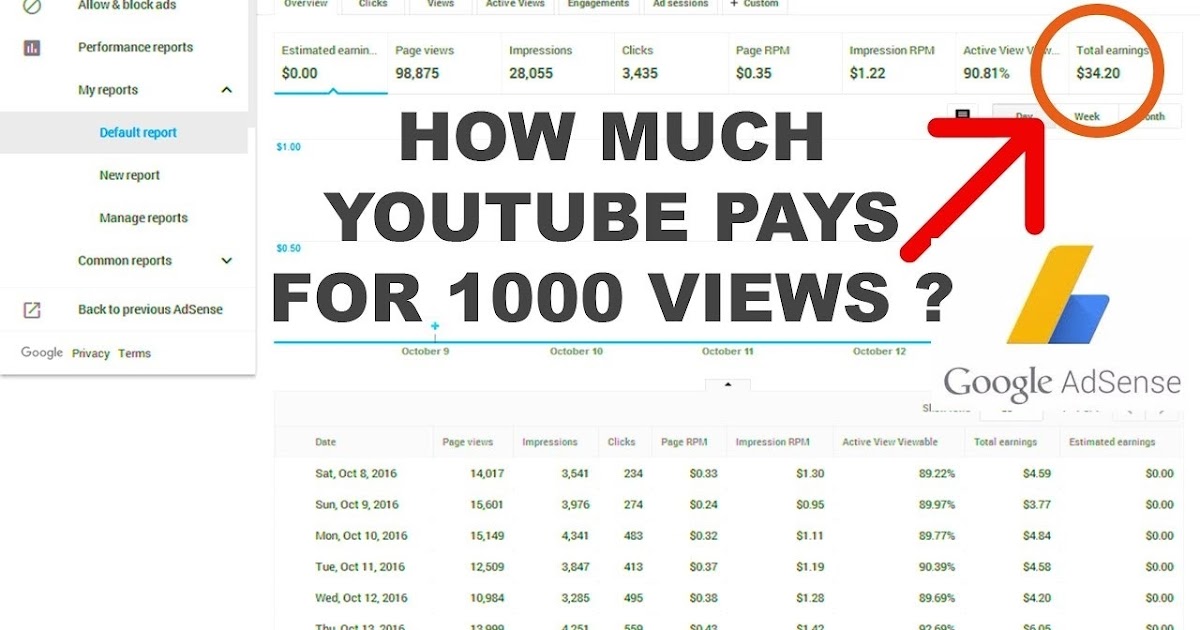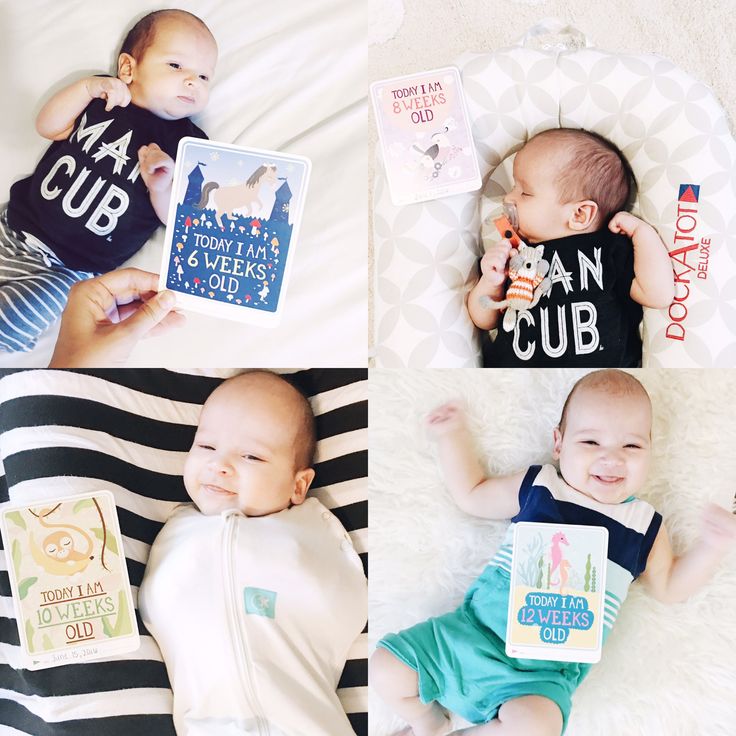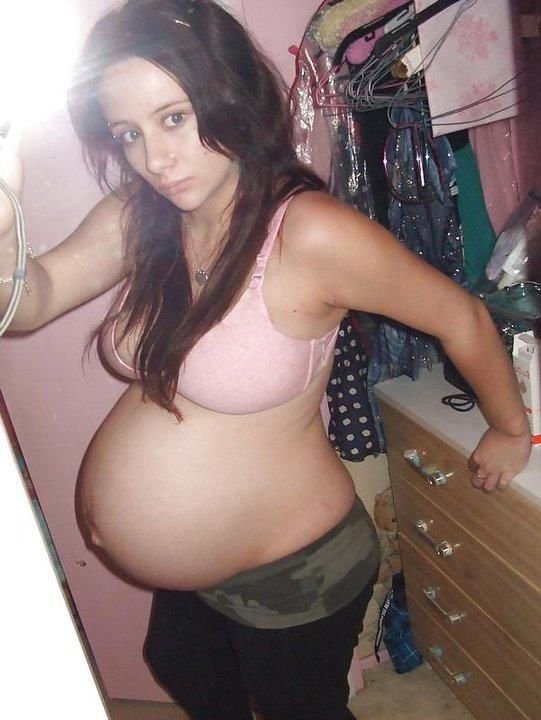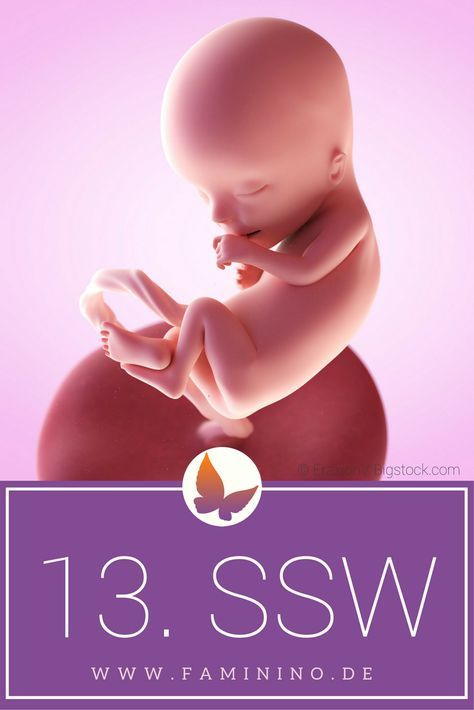How to be a child advocate
Child Advocate Career and Salary Guide
Child abuse referrals, reported victims and child deaths are increasing, according to the 2015 Child Maltreatment Report, released in 2017, by The Children’s Bureau. According to the report, an estimated 7.2 million children were involved in 4 million referrals alleging maltreatment, including neglect, physical abuse, psychological maltreatment and sexual abuse.
When seeking justice for child victims, several organizations need to be involved in the investigation to charge, arrest and prosecute an alleged offender. Crime victims often have to explain one of their worst experiences over and over again to police officers, attorneys, judges and more. For a child, it can be traumatic and cause them to re-live the abuse.
In an effort to reduce trauma, judges often appoint a child advocate to serve as a liaison between the child and various organizations involved in the investigation and ensure the safety and well-being of the child.
Job Responsibilities
Child advocates are dedicated to protecting and promoting the rights of children and providing resources and support for children and families in crises. Professionals and volunteers work in many different settings, helping children in different ways.
Judge-appointed advocates speak on behalf of and for the best interest of abused and neglected children in court and other settings. Duties include testifying, reporting to the child welfare system, reviewing documents, interviewing children and family members, and more.
Child advocates may also specialize in other areas, including foster care placement and arranging adoptions. They may work with children and teens struggling with drugs, facing homelessness and committing crimes. Becoming a child advocate involves understanding different aspects of social work and the law.
Child advocates perform a range of duties including providing counseling services, consulting with other agencies and professionals, creating formal reports and arranging additional services, such as treatment for substance abuse, parenting classes and adequate child care.
How to Become a Child Advocate
Child advocates can be salaried or serve as volunteers through advocacy agencies. Most states require salaried advocates, who are trained social workers, to have at least a bachelor’s degree in social work, sociology or psychology. A BA in Applied Psychology with a concentration in Child Advocacy can provide you with the education required to pursue a professional career in this field.
Organizations, including The National Children’s Advocacy Center (NCAC) and Court Appointed Special Advocates (CASA) can provide several resources on how to get started.
The National Children’s Advocacy Center (NCAC) operates more than 950 centers around the U.S. and offers several specific training services, including more than 40 free online courses that specifically address such issues as drug endangered children, interviewing preschool children, patterns and trends in the online victimization of children, and more.
Court Appointed Special Advocates (CASA) provide training for eligible adults to become a volunteer child advocate. There are nearly 1,000 local programs across the country that train and provide professional support for volunteers. Volunteers receive training for courtroom procedures, social services, the juvenile justice system and needs of neglected and abused children.
There are nearly 1,000 local programs across the country that train and provide professional support for volunteers. Volunteers receive training for courtroom procedures, social services, the juvenile justice system and needs of neglected and abused children.
Pay and Job Growth
According to the Bureau of Labor Statistics, child, family and school social workers earned an average annual wage of $47,510 in May 2016. Overall employment of social workers is growing faster than the average for all occupations through 2024.
Because salary potential and employment opportunities may vary depending on factors such as a candidate’s education and experience, as well as regional market conditions, prospective students are encouraged to conduct independent research.
Career Paths in Child Advocacy
Pursuing a career in child advocacy can lead you down many paths, including working for welfare organizations, foster care services, community centers, mental health facilities and children’s advocacy centers.
A child advocacy center is a child-friendly, non-threatening environment where children can receive services from a team of professionals in one central location. Centers work directly with child protection services to provide services including forensic interviews, medical evaluations, mental health services and other family and victim advocate services.
Career opportunities and job titles include becoming a youth case worker, child protective services worker, child welfare specialist, foster care social worker, youth counselor or specializing in specific functions, including forensic interviewing.
These career paths may require a bachelor’s degree in psychology. Some states also require social workers to be licensed, so those interested should contact their state board to determine the requirements.
Is Child Advocacy the Right Field For You?
Professionals working in child advocacy must be patient and empathetic, and possess superior interpersonal, organizational, problem-solving, communication and time management skills. For those who want to make an impact on a child’s life and provide a voice that may otherwise not be heard, this could be a rewarding career path for you.
For those who want to make an impact on a child’s life and provide a voice that may otherwise not be heard, this could be a rewarding career path for you.
Get program guide
Program Interested in: Program of InterestAA in Accounting AA in Applied Psychology AA in Aviation Management AA in Business Administration AA in Healthcare Management AA in Management AA in Marketing AS in Computer Information Systems BA Applied Psychology/Clinical Psychology BA Applied Psychology/Forensic Psychology BA Applied Psychology/Organizational Psychology BA in Accounting BA in Applied Psychology BA in Applied Psychology/Child Advocacy BA in Aviation Management BA in Business Admin Accounting BA in Business Admin Healthcare Mgmt BA in Business Admin Management BA in Business Admin Marketing BA in Business Administration/CIS BA in Human Resources Management BA in Management BS in Computer Info Systems HR Administration Minor with any Bachelors MA in Organizational Leadership Master of Business Administration MBA/Accounting MBA/Accounting and Finance MBA/Cybersecurity MBA/Finance MBA/Healthcare Management MBA/Information Technology Management MBA/Management MBA/Marketing MBA/Project Management MBA/Project Management in Information Technology MS in Supply Chain Management
First Name:
Last Name:
Email Address:
Phone Number:
Military Relationship: Military AffiliationNoneDependentServicememberSpouse of ServicememberVeteran
Country of Citizenship:
If you would like more information relating to how we may use your data, please review our privacy policy.
By completing this form and clicking the button below, I consent to receiving calls, text messages and/or emails from BISK, its client institutions, and their representatives regarding educational services and programs. I understand calls and texts may be directed to the number I provide using automatic dialing technology. I understand that this consent is not required to purchase goods or services.
Program Interested In: Program of InterestAA in Accounting AA in Applied Psychology AA in Aviation Management AA in Business Administration AA in Healthcare Management AA in Management AA in Marketing AS in Computer Information Systems BA Applied Psychology/Clinical Psychology BA Applied Psychology/Forensic Psychology BA Applied Psychology/Organizational Psychology BA in Accounting BA in Applied Psychology BA in Applied Psychology/Child Advocacy BA in Aviation Management BA in Business Admin Accounting BA in Business Admin Healthcare Mgmt BA in Business Admin Management BA in Business Admin Marketing BA in Business Administration/CIS BA in Human Resources Management BA in Management BS in Computer Info Systems HR Administration Minor with any Bachelors MA in Organizational Leadership Master of Business Administration MBA/Accounting MBA/Accounting and Finance MBA/Cybersecurity MBA/Finance MBA/Healthcare Management MBA/Information Technology Management MBA/Management MBA/Marketing MBA/Project Management MBA/Project Management in Information Technology MS in Supply Chain Management
First Name:
Last Name:
Email Address:
Phone Number:
Military Affiliation: Military AffiliationNoneDependentServicememberSpouse of ServicememberVeteran
Country of Citizenship:
If you would like more information relating to how we may use your data, please review our privacy policy.
By completing this form and clicking the button below, I consent to receiving calls, text messages and/or emails from BISK, its client institutions, and their representatives regarding educational services and programs. I understand calls and texts may be directed to the number I provide using automatic dialing technology. I understand that this consent is not required to purchase goods or services.
Related Articles
How can we help you?
Child Advocate: A Career and Education Outlook
Degree CompletedHigh School Diploma/GEDSome CollegeAssociate DegreeBachelor's DegreeMaster's DegreeDoctorate Degree
Desired DegreeDiploma/CertificateAssociate DegreeBachelor's DegreeMaster's DegreeDoctorate
Program of InterestAll Psychology & Counseling ProgramsApplied Behavior AnalysisChild/Adolescent PsychologyClinical PsychologyCounseling PsychologyDevelopmental PsychologyForensic/Criminal PsychologyHuman ServicesIndustrial/Organizational PsychologyMarriage and Family TherapyMental Health CounselingOccupational TherapySchool CounselingSocial WorkSpeech PathologySubstance Abuse/Addiction Counseling
Sponsored Content
The Child Advocate is a Social Worker who specializes in the placement of children into adoptive and foster homes. This involves making sure that the safety and well-being of the child and family is emphasized from placement until the case has been closed. Permanency is the goal in any placement and this involves moving a child to where he or she will have the best outcome in the shortest amount of time. This is done to make the difficulty of transition as minimal as possible. All actions will be done in accordance with established Federal and State mandates around adoption and foster care. Prior to any potential placement a family will be screened with a criminal background check for obvious child safety reasons.
This involves making sure that the safety and well-being of the child and family is emphasized from placement until the case has been closed. Permanency is the goal in any placement and this involves moving a child to where he or she will have the best outcome in the shortest amount of time. This is done to make the difficulty of transition as minimal as possible. All actions will be done in accordance with established Federal and State mandates around adoption and foster care. Prior to any potential placement a family will be screened with a criminal background check for obvious child safety reasons.
University of Kentucky
Featured Program: Our suite of social work programs offers undergraduate all the way through to doctoral degrees in an online format, and prepares graduates to have a positive impact on individuals, families, groups, organizations and communities.
Request Info
Grand Canyon University
Featured Program: Grand Canyon University offers online Bachelor of and Master of Social Work degrees that prepare you to begin or position yourself for possible career advancement in social work.
Request Info
Syracuse University
Featured Program: Syracuse University’s Council on Social Work Education (CSWE)-accredited online Master of Social Work program is preparing a new type of social worker: a social worker who knows how to use the power of technology to advocate for vulnerable communities.
Request Info
Ohio University
Featured Program: Earn your MSW in as few as 24 months at Ohio University. No GRE or GMAT required.
Request Info
University of Denver
Featured Program: Master of Social Work online - CSWE-accredited MSW online from a top-20 school of social work. Students with a BSW can earn their MSW in as few as 18 months in the advanced standing track.
Request Info
Regis College
Featured Program: The online MSW is offered through the Regis College School of Health Sciences and has been designed for those interested in beginning a new career in social work or growing in their current role.
Request Info
George Mason University
Featured Program: The Master of Social Work offers a choice between two specialized practices in either Adults & Healthy Aging or Children, Youth, & Families, both of which are designed for you to become a competent social work leader.
Request Info
FIND SCHOOLS
Sponsored Content
The process involves an in-depth analysis and assessment of the family home situation. Family composition, social history, previous history with state adoption or foster care along with the medical and behavioral history of the child to be placed must all be taken into account. The child’s specific needs based on medical and social history will be discussed with both the child and potential placement family present. Practical assistance for the family is also provided with the placement such as acquiring Medicaid coverage for the child, financial assistance or help with housing as needed. The placement of a child in an adoptive, foster or relative care home is a complex process that involves many aspects.
The placement of a child in an adoptive, foster or relative care home is a complex process that involves many aspects.
Some of the duties of a Child advocate might include:
- Assessment of child and family
- Communication of child’s needs, medical and social history
- Practical assistance to family
- Working with family to make sure child is appropriately screened for special needs
- Creating Rapport between family, child and Child Advocate
- Involving family in all aspects of placement
- Facilitating visits for child with family, relatives and siblings based on court ordered visitation
- Tracking of child’s case within state adoption/foster care database.
- Attend all court hearings and make recommendations to judge
- How This Job Services Human Beings
The Child Advocate performs a vital role for children who have entered into the Child Welfare system. By working diligently to find, assess and prepare a family for a child’s placement the Child Advocate prepares the way for a new chapter in the child’s life. The function performed by the Child Advocate is crucial for both children and their potential adoptive and foster families. When performing at a high level, the Child Advocate is creating a safe haven and second chance at life for a child who had previously been caught in tragic circumstances. It is a precious gift the Child Advocate bestows on both families and children, that of a loving union of family.
The function performed by the Child Advocate is crucial for both children and their potential adoptive and foster families. When performing at a high level, the Child Advocate is creating a safe haven and second chance at life for a child who had previously been caught in tragic circumstances. It is a precious gift the Child Advocate bestows on both families and children, that of a loving union of family.
Impact a Child Advocate Has on Society
The work of a Child Advocate has a profound impact on society, the child and the family.
Among the benefits to society are:
- Decreasing drop-out rates
- Increasing test scores
- Creating better school environments
- Decreasing Juvenile crime rates
- Decreasing costs of children in the system through adoptive placement
Impact on the Child
The impact of the Child Advocate on the life of the child is nothing short of miraculous. By taking a child who had previously been in an abusive situation and had become a ward of the state and placing them with a family, the Child Advocate gives the child the gift of a new chance in life. It is impossible to overstate the tremendous impact a Child Advocate has on a child. Few jobs have more impact on the individual than the Child Advocate has on the child.
It is impossible to overstate the tremendous impact a Child Advocate has on a child. Few jobs have more impact on the individual than the Child Advocate has on the child.
Impact on the Family
The Child Advocate facilitates the assessment, rapport building and placement of a child with an adoptive family. The gift of a new child to brighten the home and bring joy to the new parents is truly something special. For some couples, the adoption of a child is the only way they can have children. The placement of a unique and special being in the form of a brand new member of the family will have a lifetime impact on an adoptive family. Few jobs have a bigger impact on families than that of the Child Advocate.
Education Required For a Child Advocate
Most states require a minimum of a Bachelor’s degree in a Behavioral Sciences field of study (e.g. Psychology, Social Work, Sociology etc.) to become a Child Advocate. Many states require a Master of Social Work degree.
Range of Salaries
The annual mean wage on a nationwide basis for a Child Advocate is: $51,030
U.S. Bureau of Labor Statistics, May 2019. National average for Child, Family and School Social Workers.
What’s next to pursue this career?
You will need a Bachelor’s degree in a Behavioral Science such as Psychology, Sociology or Social Work as a minimum requirement to become a Child Advocate. Many states require a Master of Social Work degree and this degree is always highly sought after by employers.
Learn how to become a child advocate • BUOM
Child advocacy can be an interesting and rewarding career path for people who want to help children in need. It takes a lot of preparation to become a child advocate, so it's important to know what to expect before you start getting your qualification.
In this article, we provide an overview of what a child advocate is and explain the path to starting a career in child advocacy.
What is a child protector?
A children's lawyer is a type of social worker who specializes in providing support and services to minors. They work with neglected and abused children to promote their positive social and emotional development. Children's rights advocates take the time to get to know each client in order to properly advocate for their interests. One of their main functions is to ensure that children in foster care have access to suitable facilities by providing them with resources to meet their physical and mental needs. They also manage the process of transferring a child to a new foster family or foster home.
What does a child advocate do?
Child rights advocates usually work on several cases at the same time and are responsible for the overall well-being of each child. They can work on their assignments for several years and provide support to foster children throughout their childhood and adolescence, which includes a wide range of caregiving and advocacy responsibilities. Some of the main responsibilities of child rights advocates include:
Some of the main responsibilities of child rights advocates include:
-
Organization of state medical insurance for customers
-
Coordination of transport and temporary housing
-
Assessment of the mental state of the child and home environment
-
Screening for
-
interaction with each child trusting personal relationships
-
Registration of documents on matters of guardianship
-
Strategy to keep groups of brothers and sisters together
-
Typers of life in life skills
-
Monitoring of the family’s visit to the court
-
Communication with families about the needs of their child and leaving
-
Detection of young people risk groups and preparing intervention plans
-
Planning medical and therapeutic appointments for their clients
-
Accompanying clients to court hearings and testifying as needed
-
Helping out-of-system children find housing and employment
What is the working environment for a child advocate?
Child rights advocates usually work in government agencies, schools, mentoring programs or child rights organizations. They make frequent home visits to their clients, requiring them to travel within a certain area depending on the location of the group homes, reception centers, and each client's legal guardians. When lawyers are not actively interacting with clients, making appointments or attending court hearings, they are performing administrative tasks in the office. They often work flexible hours to accommodate all of their cases.
They make frequent home visits to their clients, requiring them to travel within a certain area depending on the location of the group homes, reception centers, and each client's legal guardians. When lawyers are not actively interacting with clients, making appointments or attending court hearings, they are performing administrative tasks in the office. They often work flexible hours to accommodate all of their cases.
How to become a child advocate
Child advocates have an important responsibility for making decisions on behalf of young children, so they must have extensive child protection expertise. If you want to make a difference by becoming a child advocate, follow these steps to prepare for your career:
1. Spend time working with children
The first step to becoming a child advocate is to gain work experience with kids. It is important for people entering the field of child rights to be passionate about learning about each individual child and helping them succeed. Volunteering or getting a job where you can work with children allows you to determine if you enjoy being around children as a full-time job. Your childcare experience can also help you learn strategies for interacting with children of all ages and understanding their needs.
Volunteering or getting a job where you can work with children allows you to determine if you enjoy being around children as a full-time job. Your childcare experience can also help you learn strategies for interacting with children of all ages and understanding their needs.
2. Complete a bachelor's degree in social work.
Then apply for a bachelor's degree program and choose a specialty related to social work. Examples of popular specializations for child advocates include psychology, early childhood education, health and social services, sociology, or behavioral sciences. During your undergraduate studies, you should focus on classes related to child protection and social services. Social work undergraduate programs typically require students to undertake independent research, complete an internship, and analyze real case studies.
3. Earn a master's degree
Most states require you to complete a master's degree in social work in order to obtain a license. Look for schools that offer a master's degree in child advocacy and social welfare to ensure you are qualified to handle the types of social cases you are interested in. During your master's program, you will study complex social issues, signs of abuse and neglect, children in the justice system, family crisis intervention, forensics, policy development, and advanced research methods.
Look for schools that offer a master's degree in child advocacy and social welfare to ensure you are qualified to handle the types of social cases you are interested in. During your master's program, you will study complex social issues, signs of abuse and neglect, children in the justice system, family crisis intervention, forensics, policy development, and advanced research methods.
4. Become a licensed clinical social worker
Apply for a clinical social work license to validate your skills as a child advocate. This designation is generally required for any government child advocacy work and can also show advanced levels of expertise to outside employers. Obtaining a license usually involves passing a content exam and being interviewed by the state licensing board.
5. Apply for a child protection role
Once you have obtained your initial qualifications, start applying for child protection positions with child protection agencies and organizations. If you have a specific age group or type of support you want to provide, look for these keywords when browsing job descriptions. You can often find career connections through your master's program or by joining professional social work-related organizations.
If you have a specific age group or type of support you want to provide, look for these keywords when browsing job descriptions. You can often find career connections through your master's program or by joining professional social work-related organizations.
Child Advocate Skills
Since child advocates have a wide range of responsibilities, they must have skills and experience in several areas. Good child advocates spend time honing their professional skills in order to provide the best support possible for each client. Child rights advocates must be prepared to handle all aspects of their role with the following skills:
-
Counseling: Child rights advocates can work with clients with mental health problems, requiring them to have basic counseling skills to help each child cope with with their problems.
-
Attention to detail: Because children may not be able to accurately convey their thoughts, feelings, and experiences, child advocates must have astute observational skills.
 They pay attention to details to spot signs of neglect and determine how best to support their customers.
They pay attention to details to spot signs of neglect and determine how best to support their customers. -
Crisis Management: When their client is in crisis, a child rights advocate must be able to remain calm and act immediately to resolve the issue. They must be able to think logically under pressure and come up with multiple solutions for different scenarios.
-
Decision-making: Child rights advocates are responsible for the well-being of their clients and can play a role in making decisions about their home and school environment. They must be able to consider all factors before making a decision, using strategic thinking to make the best choice.
-
Organization: To balance all their affairs, child advocates must have strong organizational skills. They must stay organized to manage appointments with clients and their families, court dates, appointments, paperwork deadlines, and other critical activities.
Salary and Job Outlook for Children's Lawyers
Child rights advocates in the US have an average salary of $30,723 per year. They can increase their earnings by specializing in child protection or by acquiring additional qualifications and experience. The Bureau of Labor Statistics projects that social work will grow 13% from 2019 to 2029, much faster than the average growth rate for all jobs. Children's rights advocates ensure that all children have access to healthy and stable childhoods, which makes protecting children's rights a sought-after and sustainable job.
They can increase their earnings by specializing in child protection or by acquiring additional qualifications and experience. The Bureau of Labor Statistics projects that social work will grow 13% from 2019 to 2029, much faster than the average growth rate for all jobs. Children's rights advocates ensure that all children have access to healthy and stable childhoods, which makes protecting children's rights a sought-after and sustainable job.
How to bring up a protector?
Elena Apryatkina, deputy director of the Norilsk Art Gallery, mother of two sons:
– Attitude towards the motherland is laid in the family. It is necessary to educate so that the sons understand that God, the Motherland, the family are above all. This should be imprinted in the minds of children from an early age. There is nothing more precious than our roots, this understanding is deeply rooted in the Slavs. Protecting is the primordial instinct of men. This is especially evident when they find themselves in extreme situations. True, even in civilian life today, men have a continuous extreme. Many, especially in central Russia, lead a terrible lifestyle. Lack of work, drunkenness, homelessness... But it has been noticed that once in combat conditions, even the most degraded seem to flourish like a man, behave with dignity, become heroes. The purpose of the stronger sex must be helped to realize - both in the family, and at school, and in society. And women should understand that they need to competently raise their sons. Dignity, honor - these are the main qualities of a defender. And I try to raise my sons that way.
This is especially evident when they find themselves in extreme situations. True, even in civilian life today, men have a continuous extreme. Many, especially in central Russia, lead a terrible lifestyle. Lack of work, drunkenness, homelessness... But it has been noticed that once in combat conditions, even the most degraded seem to flourish like a man, behave with dignity, become heroes. The purpose of the stronger sex must be helped to realize - both in the family, and at school, and in society. And women should understand that they need to competently raise their sons. Dignity, honor - these are the main qualities of a defender. And I try to raise my sons that way.
Alevtina Shamko, a long-time Norilsk woman:
– I think it is difficult to raise a boy to be a good warrior in an inferior family – the main thing in this matter comes from the stronger sex. Men should feel their special fatherly responsibility. The personal qualities of a person are also important, many of them successfully work on themselves. My cousin-nephew, lieutenant colonel of artillery, the first professional military man in our family, raised his son, who had already received the rank of senior lieutenant. Although there have been very difficult times for the military, I hope the dynasty will continue.
The personal qualities of a person are also important, many of them successfully work on themselves. My cousin-nephew, lieutenant colonel of artillery, the first professional military man in our family, raised his son, who had already received the rank of senior lieutenant. Although there have been very difficult times for the military, I hope the dynasty will continue.
It is necessary that the state support its army, interest people not only materially, but also raise the authority of military service. We need to think carefully about how to stimulate the youth so that the guys go to serve. Apparently there are moves. I heard that now there is a big competition in military schools, as well as in theological seminaries. I think that the Orthodox Church can do a lot to make the children understand the importance of defending the Fatherland from a spiritual point of view.
Ludmila Vorobieva, accountant:
– I have always believed that a child should be given more independence. But at the same time, he should be as busy as possible with studies, sports, creative pursuits, household chores, and finally. He shouldn't have time for stupid things, even to think about them. Naturally, constant monitoring is needed. But not guardianship. You can not lisp with children, otherwise they will sit on the neck. Even if the child is just a baby and plays pranks, you should not say “no” while smiling, explain everything to him like an adult.
But at the same time, he should be as busy as possible with studies, sports, creative pursuits, household chores, and finally. He shouldn't have time for stupid things, even to think about them. Naturally, constant monitoring is needed. But not guardianship. You can not lisp with children, otherwise they will sit on the neck. Even if the child is just a baby and plays pranks, you should not say “no” while smiling, explain everything to him like an adult.
Rinat Gafurov, music school teacher, head of the Express Ensemble:
- My grandfather Minigayan fought in the infantry, was wounded, awarded. I remember when I was little, he talked about the war... I think that in education everything depends on the family. The boy must be prepared at home so that he does not have fear, prejudice before the army. I myself didn’t serve due to illness, I don’t have a son, but there are many wonderful students. We sometimes talk about military topics. And now I would tell them that you need to prepare yourself for the army and prepare yourself, go in for sports, be able to remain a normal person in any conditions. And the holiday of the Defender of the Fatherland is very important in the matter of education - this is a very good example of how one should treat one's soldiers, those who served for the sake of peace.
And now I would tell them that you need to prepare yourself for the army and prepare yourself, go in for sports, be able to remain a normal person in any conditions. And the holiday of the Defender of the Fatherland is very important in the matter of education - this is a very good example of how one should treat one's soldiers, those who served for the sake of peace.
Alexander Kudrin, mountaineering instructor:
– I am sure that boys can be educated only by their own example – you will not achieve anything with notations and teachings. When I led the mountaineering section, I always took my little son with me to the training camp. In my opinion, sports are obligatory for future men. Especially such as mountaineering and tourism, cultivating the team spirit. It is a pity that now there are no special mountain troops in the Russian army, only mountaineering training is carried out in some branches of the military. And such specialists were needed both in World War II, when the Germans took Elbrus, and during military campaigns in Chechnya.
And such specialists were needed both in World War II, when the Germans took Elbrus, and during military campaigns in Chechnya.
Larisa Saenko, kindergarten teacher with 30 years of experience:
– In order for a boy to grow up to be a real man, he must have a positive male example before his eyes. Of course, it should be the closest person - dad. If you educate only with words, explain how to behave, and show the opposite behavior by example, then the child will remember and accept as a model of behavior exactly what he sees. You need to instill responsibility, teach respect for parents.
It seems to me that my husband and I brought up our eldest son correctly, now he is very attentive and caring towards others. It is not yet clear how the youngest will grow up, but we instill all the positive features in him with our own example.
Stanislav Krivenko, father of a six-year-old man:
– A real man should be independent, purposeful and self-confident. I would really like my son to grow up like this. As far as possible, I take him with me on small trips, on simple routes, I worked out with him at the climbing wall, I take him to hockey. Unfortunately, it is not possible to devote a lot of time to his son, so sometimes older boys serve as an example - not the best - then you have to do serious work with him, discuss his actions, give examples of correct behavior.
I would really like my son to grow up like this. As far as possible, I take him with me on small trips, on simple routes, I worked out with him at the climbing wall, I take him to hockey. Unfortunately, it is not possible to devote a lot of time to his son, so sometimes older boys serve as an example - not the best - then you have to do serious work with him, discuss his actions, give examples of correct behavior.
In general, we learn everything together with children, no one knows what pedagogical lever should be pressed in order to get the desired result in the end. In raising children, we often go through trial and error, let's hope that there will be fewer mistakes on this path than successes, and our children will grow up to be real people.
Olga Vodoleeva, speech pathologist:
– Fathers themselves need to show boys the norms of attitude towards their mother, towards a woman - it is necessary to instill respect for the opposite sex from a very early age. In kindergarten, we use gender education: we teach boys to give up their place or a toy, that is, to sacrifice their interests in favor of girls. Ultimately, a man should be able to offer help without prompting, help a woman with bags, open the door for her.
In kindergarten, we use gender education: we teach boys to give up their place or a toy, that is, to sacrifice their interests in favor of girls. Ultimately, a man should be able to offer help without prompting, help a woman with bags, open the door for her.
My daughter had a situation at school when someone drank her compote in the cafeteria, and the boy sitting next to her gave her his glass of compote. It was very pleasant and somehow masculine.
Aleksey Nurkenov, karate coach, young dad:
– Probably, someone wise has already formulated all the correct life principles before us, but our task is to choose the right ones for ourselves and follow them. For example, I adhere to the following principles of educating guys: the stronger one is not the one who pulls himself up more than others or hits more powerfully, but the one who can overcome his “I can’t” and knows how to take care of those who are weaker. Or: “Karate is the art of self-control and a sense of moral duty, even it is not always necessary to beat ahead of the curve, everything can be solved by conversation.” Recently, I posted in the gym where I conduct training, posters with a number of similar statements, which, in my opinion, reflect what a real man, a defender, and indeed a person should be like. And we talked with the guys on this topic, I’m trying to convey to them the truth of these words, explain with examples, because I want them to grow up as worthy people, even if they don’t become great athletes.
Or: “Karate is the art of self-control and a sense of moral duty, even it is not always necessary to beat ahead of the curve, everything can be solved by conversation.” Recently, I posted in the gym where I conduct training, posters with a number of similar statements, which, in my opinion, reflect what a real man, a defender, and indeed a person should be like. And we talked with the guys on this topic, I’m trying to convey to them the truth of these words, explain with examples, because I want them to grow up as worthy people, even if they don’t become great athletes.
Nikolai Timchenko, a veteran of the Norilsk Air Squad:
– You are asking a difficult question... You can't treat everyone with the same brush, we are all individuals. The method of education in words, maybe someone perceives. But I think that only with the help of a personal example can the desired effect be achieved. This is a complex process - to lay the core in a person.












